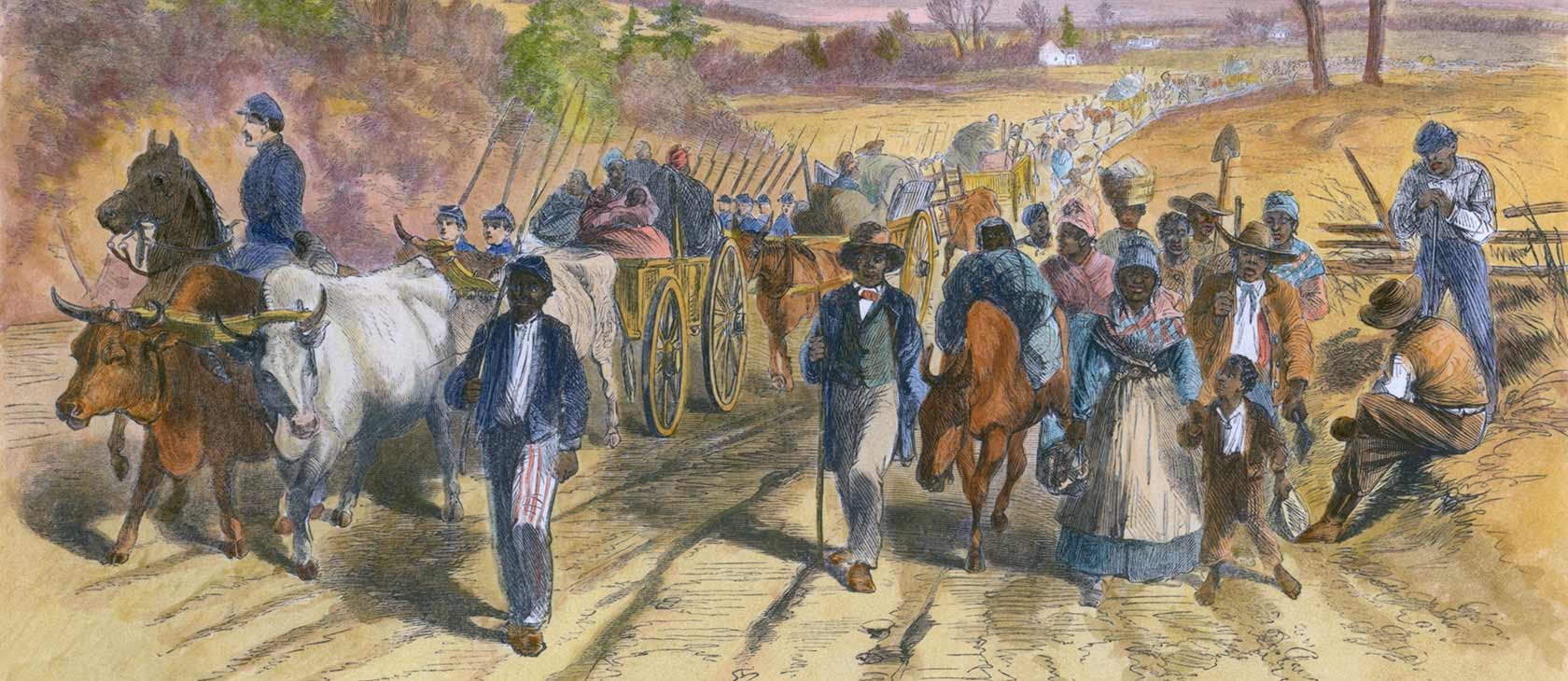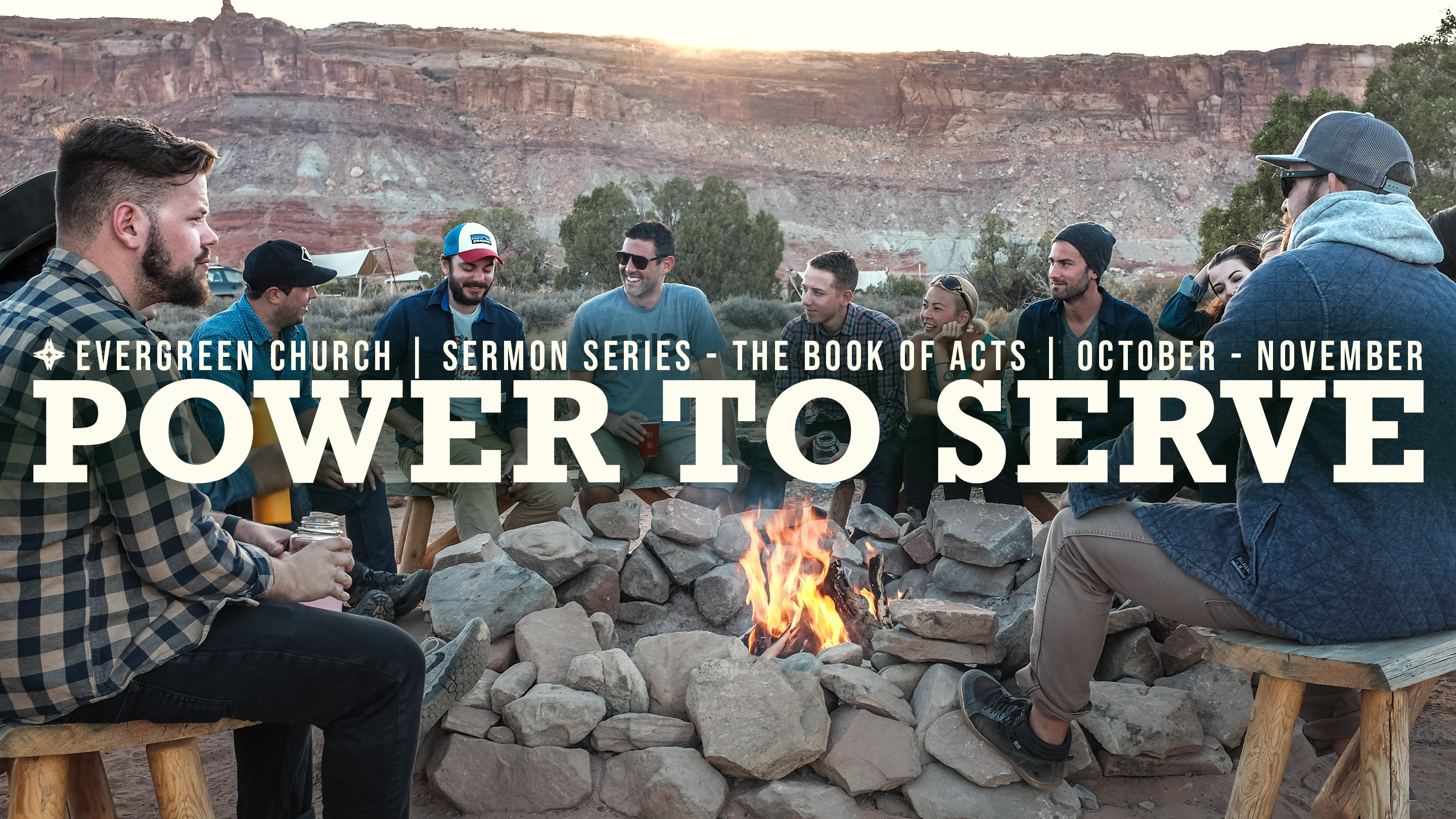
[Listen to an audio version here]
Booker T. Washington in his book, Up from Slavery describes what it was like for black slaves at the end of the Civil War.
Finally the war closed, and the day of freedom came. It was a momentous and eventful day to all upon our plantation. We had been expecting it. Freedom was in the air, and had been for months. . . . As the great day drew nearer, there was more singing in the slave quarters than usual. It was bolder, had more ring, and lasted later into the night. . . .
The night before the eventful day, word was sent to the slave quarters to the effect that something unusual was going to take place at the “big house” the next morning. There was little, if any, sleep that night. All was excitement and expectancy. . . . The most distinct thing that I now recall in connection with the scene was that some man who seemed to be a stranger (a United States officer, I presume) made a little speech and then read a rather long paper—the Emancipation Proclamation, I think. After the reading we were told that we were all free, and could go when and where we pleased. My mother, who was standing by my side, leaned over and kissed her children, while tears of joy ran down her cheeks. She explained to us what it all meant, that this was the day for which she had been so long praying, but fearing that she would never live to see.
What an amazing scene! The glory of freedom! There is an amazing joy in the releasing of the captives and the slaves to glorious freedom.
And it is just that sort of freedom that the good news about Jesus Christ proclaims to us. We are free. Paul says, “For freedom you have been set free!” “You are called to freedom!” The Apostle Paul says in Gal. 5:13. If you have put your trust in Christ as Savior, then you have been freed! You are free! You should rejoice like the slaves rejoiced to be set free after the Civil War!
The Meaning of Our Freedom
What does it mean that we have freedom? From what does Christ set us free? Consider these seven ways that Christ has freed us.
1. Christ has freed us from guilt. Our sin has incurred guilt before God and feelings of guilt within ourselves. We are rightfully under the curse of the law because of our sin. The glorious news is that “Christ redeemed us from the curse of the law by becoming a curse for us . . .” (Gal. 3:13). We stand justified and accepted before God’s throne. We no longer need to feel the crushing weight of guilt because of our sin. We are free.
2. Christ has freed us from old habits. The old habits of sin no longer have dominion over us. We may experience the presence of sin, but we don’t have to live under its power. “Those who belong to Christ Jesus have crucified the flesh with its passions and desires” (Gal. 5:24).
3. Christ has freed us from anxiety. We may feel anxiety, but we don’t need to let it dominate our lives. Why? Because Christ has given Himself for us, we do not need to be anxious about the future! We can trust that the Christ who gave Himself for us will subdue all things for our good.
4. Christ has freed us from bondage to old wounds. We all have those things that have hurt us, but we don’t have to live in bondage to them. Christ’s assurance of blessing tells us that these wounds do not describe our destiny. In addition, Christ’s power within us frees us to forgive and so release ourselves from the bondage of those who have hurt us.
5. Christ has freed us from the power of bad relationships. Why do we remain held in the bondage of bad relationships? Christ frees us to find what we need in Him. When we do that, we don’t have to bargain our well-being away in bad relationships while eating the scraps of acceptance that people are willing to throw to us. We are freed to love and serve those around us while also maintaining legitimate boundaries.
6. Christ has freed us from idols or wrong centers. When an idol takes over our life, we look for life from it. This causes us to sacrifice everything for the sake of it. For example, work becomes an idol for us, and we sacrifice our family, health, and children to it. Christ frees us from this because He delivers to us the status and security we were looking for in our work and that our work promised but could not deliver.
7. Christ has freed us from the fear of death. Death has lost its sting. It will not win in the end. We know that when we die we will be with Jesus. When He comes again, we will rise to new life. We know that He will take care of those we love. We do not need to cower before death the way our society does. Christ has freed us!
There is literally nothing more important that you can do this year than to take these facts in deeply and learn to rejoice in your freedom. A greater sight of these things will change everything for you.
As I enter into my 7th year here, there are really two things that I want you to see through my ministry here. The first is to have a greater vision to see how great Christ is and how utterly sufficient all that He has is for you. This is the first thing, not what we do but what Christ has done, is doing, and will do for us and in us.
Get that in view! Meditate daily on it. Listen for it in the sermon. Experience it in the sacraments. Pray that the Holy Spirit will enable you to see it. Remind each other of it. Pray for each other that we will be able to see like never before how totally sufficient Christ is for everything we need. Pray that we will see how secure we are, how accepted we are, how empowered we are, how valued we are, how free we are! I can’t say it enough or too often. We have everything we need secure for us in Christ. You are free! You are called to be free, to experience this freedom.
What We Should Do with Our Freedom
The second thing is that when you are filled with joy because by faith you see the wonders of what Christ has for you, use that glorious freedom to work as hard as you can to serve others, do good, and glorify God. The Westminster Shorter Catechism asks, “What is the chief end of a human being?” It answers, “to glorify God and enjoy Him forever.” Those are the two key things I want to teach. I want you to find your joy and fulfillment in God. Being filled, I want you then to do all that you can to glorify God to the highest degree you possibly can.
Enjoying God and glorifying God are interrelated. Sometimes we need to press forward when we do not feel like it. However, many times what we need to do when we don’t feel like serving is to go back to the root of faith. Ask yourself: Am I experiencing the freedom that I have in Christ through faith? Am I, through fellowship with Him, being empowered to live a new life and enlightened to see the greatness of His power and love for me? It is faith working through love. In order to work through love we need to grow in our faith. When we grow in our faith, we can and will work through love.
If you feel like you have nothing left to give right now, then give attention to yourself. Get the help you need. Tend to your wounds. Get healthy. Get your spirit right. Take a rest. Take a break. Let your heart heal. God does not need our service or His own gifts (which is really what we are giving back to Him). The kingdom will make it on OK without you, and you will come back much better equipped to serve. Make no resolution to do anything except take in God’s goodness until you feel empowered to move forward.
If you feel like you have nothing left to give, then give attention to what you are doing. Do you really need to do all the things that you are doing? Are there things that you are holding onto that you don’t need to? Are there areas you are spending money where you could stop? Are there relationships that have moved on, but you keep holding on to them? And do you need to think so much about all the things that society tells you that you need to think about? I mean, whether you love him or hate him, does Donald Trump really deserve as much of our emotions and head space as we have given him (and no, he’s not going away)? You need to spend lavishly, but you need to spend lavishly on those things most worthy of expenditure!
If you feel like you have nothing to give, work on increasing your faith, but also work on increasing your love: “through love serve one another.” Yes, you can do this. Learn to see the world and people as God sees them. When it comes to believers, we have all trust in Christ and resolved to live for Him. What an amazing thing we have in common! But what about outside the church? The Apostle Paul says, do good until all, especially those of the household of faith. Every person you meet is a human created in the image of God and made for society! The world is full of friends, in spite of its sinfulness. We are made for community! But what if they do us wrong? Then, they harm themselves. If someone is unjust, they are acting contrary to their nature. It’s as if they were breaking their own bones. This deserves our pity as much as our condemnation! We can learn to love because God will teach us how to love, even our enemies, even in our darkest days.
So, you may not feel that you have much to give. Then, give attention to what is going on in your heart and life. Find ways to reconnect with the freedom in the Gospel. However, if you feel the freedom and joy that God gives through the Gospel, then push forward to serve others. Push forward, and push forward hard. Give it all you’ve got. Do all that you can. What should you do with your freedom? “Do not use your freedom to indulge the flesh, but through love serve one another.”
At Thanksgiving, we learned that we should see the blessings that God has given us innumerable ways without ignoring the bad. At Christmas, we learned that there is a joy that transcends all our circumstances. At New Year’s, we hear the good news of a fresh start. A whole year is before us! What are you going to do with it? How are you going to serve this year? Make your resolutions as big as you can and as attainable as you can. Resolve to do something that will equip you to serve better. Resolve to do something that will bless those around you. Resolve that in some significant way or many, you will serve others in love.
When you do, expect opposition. Expect resistance. Benjamin Franklin said: “Mankind are very superficial and dastardly: they begin upon a thing, but, meeting with a difficulty, they fly from it discouraged: but they have capacities, if they would employ them” (cited in Ralph Waldo Emerson, The Conduct of Life, 1081). The Apostle said concerning the Christian life, “Let us not become weary in doing good, for at the proper time we will reap a harvest if we do not give up” (Gal. 6:9). What is true of the good of the Christian life is true of all good things in this life. There will be opposition to doing them, inside us and outside us. We have to accept that in order to accomplish anything good. Your family or church or class will not applaud your efforts to change things. Practicing an instrument or reading a difficult book will always be hard. Engaging in society involves the clash of political opposition. We’ve got to accept this reality and still move forward. Through love, serve one another, and don’t give up!
Conclusion
So, what are you going to do with a year? Maybe you need to take the whole year off from serving and just get mentally and physically healthy. That’s fine. Your standing with God is not based on how much you serve this year. You are justified in Christ, on the basis of His perfect service, not yours.
But if you’re in good shape or even decent shape, if you feel that you can serve, then whatever your hand finds to do, do it with all your might. Use the joy of the freedom of your spirit to serve one another in love! Push forward. Push hard. Don’t take the path of least resistance. Whatever you do, do it heartily as unto the Lord. Keep breathing in deep the freedom you have in Christ, and aim for something greater this year out of a great sense of love for Christ and the power of Christ.
Whatever this year brings, let’s aim at something. Let’s try to do something significant. Let’s have no wasted years. Let’s do things that will bring us satisfaction. Let’s do things that will glorify our God and Savior. Let’s do things that will impact our communities. Let’s do things that will bless our church and the broader church. Let’s do it for the love of others and the love of our great Savior who loved us and gave himself for us that He might free us to be a people for Himself, zealous for good works. Amen.

